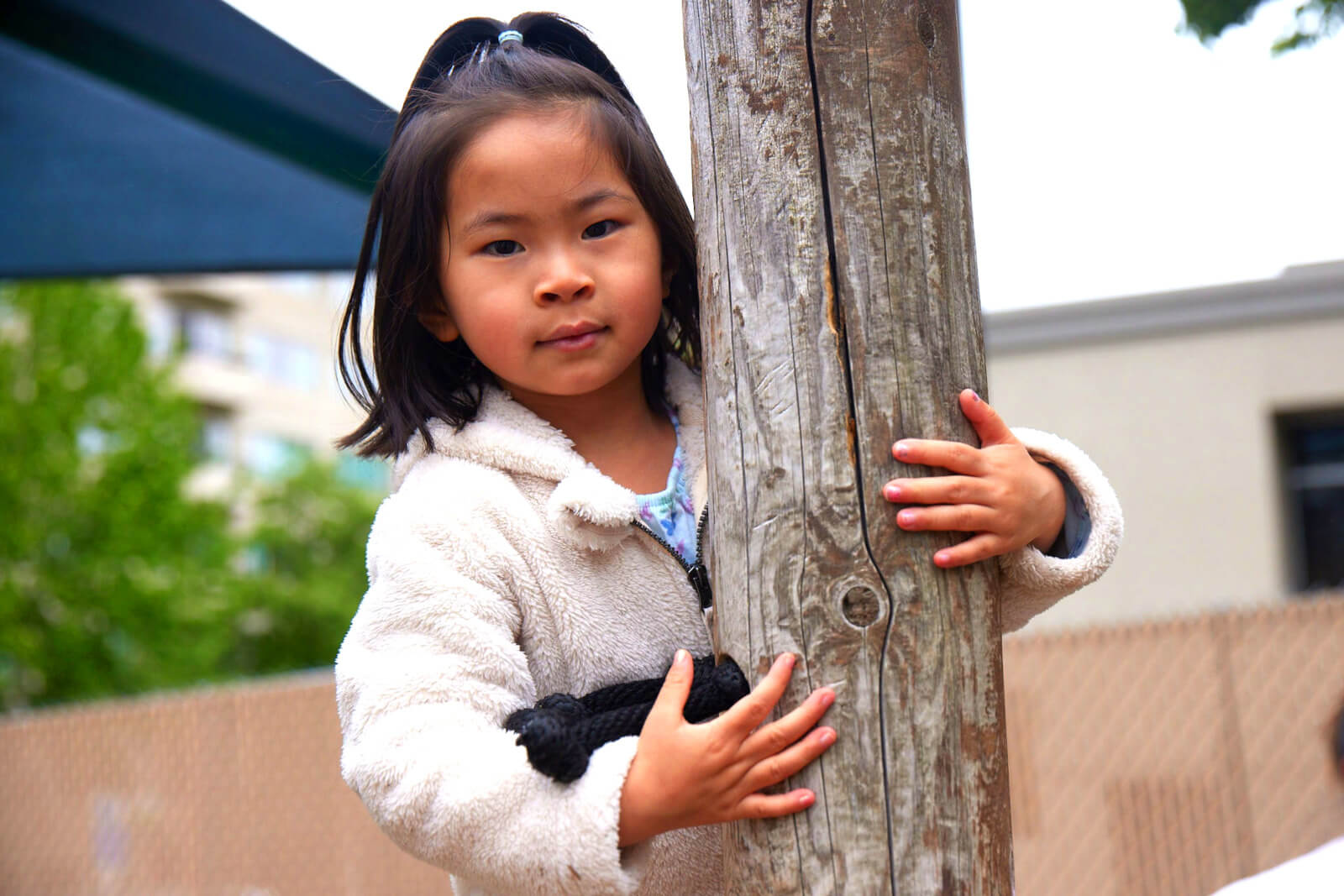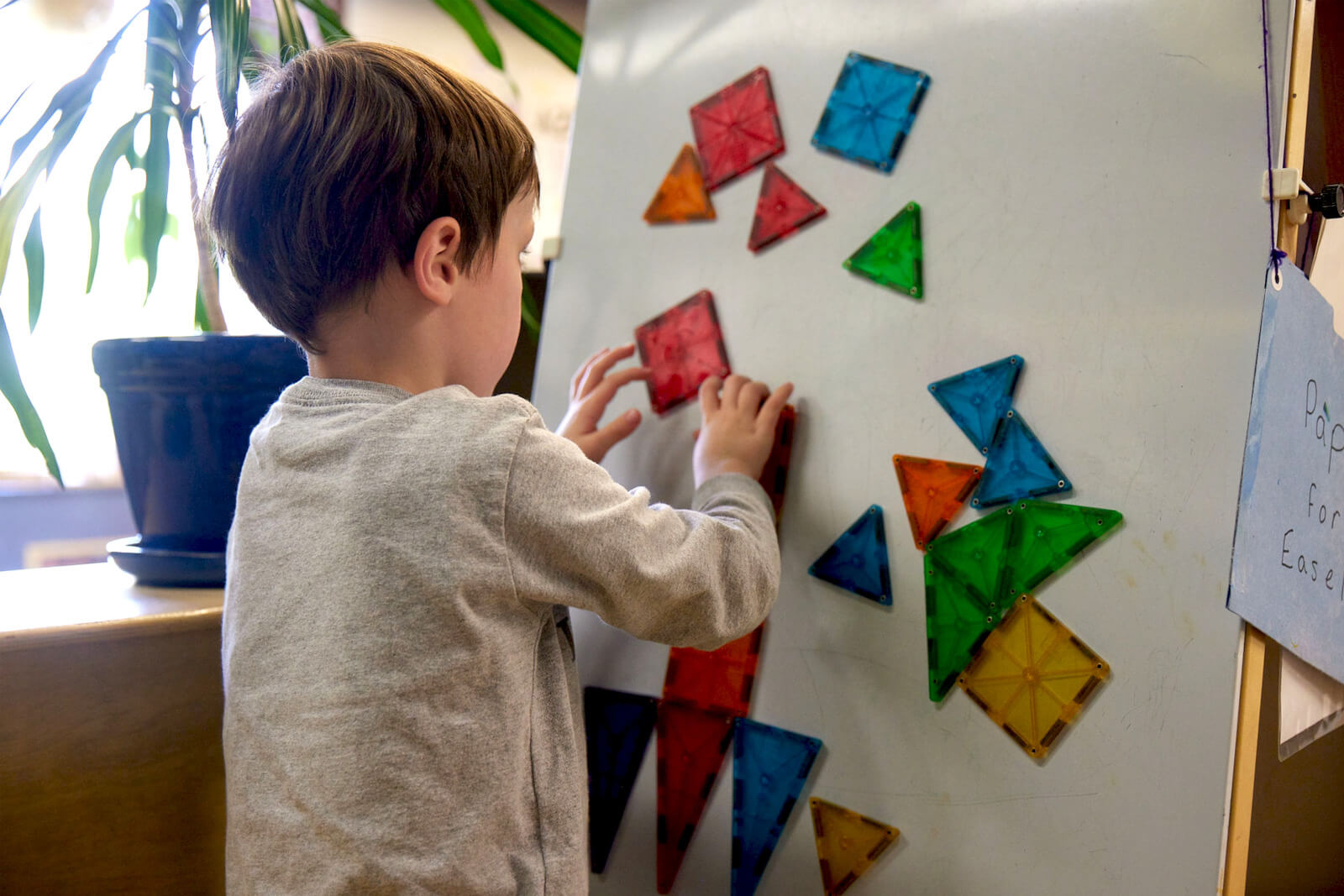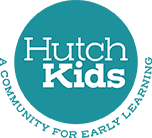Curriculum Overview
Early childhood is a special period for children as they move from a sensory and ego-centric way of experiencing the world to one that is richer with expanded social relationships and a growing understanding of the wider world. It is a time of rapid brain growth when language skills expand and new vocabulary and reasoning skills serve as a foundation for intellectual development. Children’s bodies are also developing and require lots of opportunities to move; these opportunities are built into every day with regular playground time, walks, and planned physical education.
Teachers utilize resources from the Creative Curriculum to plan activities or investigations inspired by children’s developmental needs and interests. Our curriculum is designed to nurture each child’s self-confidence and honor their unique language, cultural, and family background. Teachers facilitate the goals of the curriculum and support children as they construct new knowledge, develop skills through hands-on exploration, learn through trial and error, build relationships and develop a lifelong love of learning. We are also informed by the Relationship-Based Phase Model, Developmentally Appropriate Practice, Anti-Bias Education, and Emergent Curriculum.
At Hutch Kids, we consider the classroom environment the third teacher and intentionally curate spaces that are specific to the particular needs, development, and identity of each child enrolled. Classrooms are functional, inviting, beautiful, and reflective of the specific community they serve. Classrooms will grow and change with the ever-evolving needs of the children throughout the school year and these environments will look different each year when they welcome a new group of children into the space.
Because authentic, positive relationships are at the heart of our program, Hutch Kids ratios and group sizes are well below the maximum ratio and group size set by both the Washington State Department of Children, Youth and Families (DCYF) and the National Association for the Education of Young Children (NAEYC).



